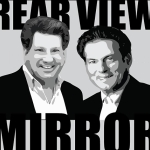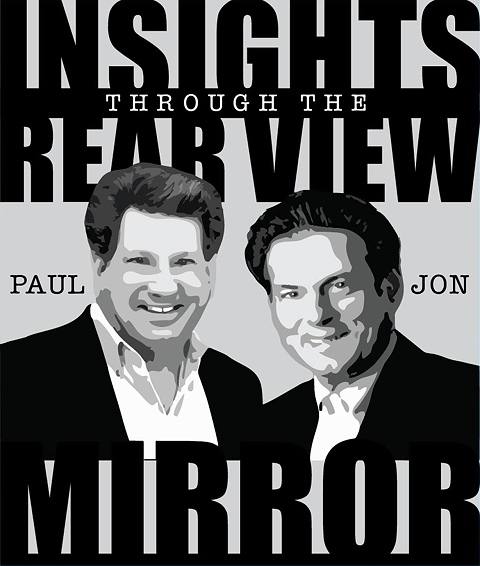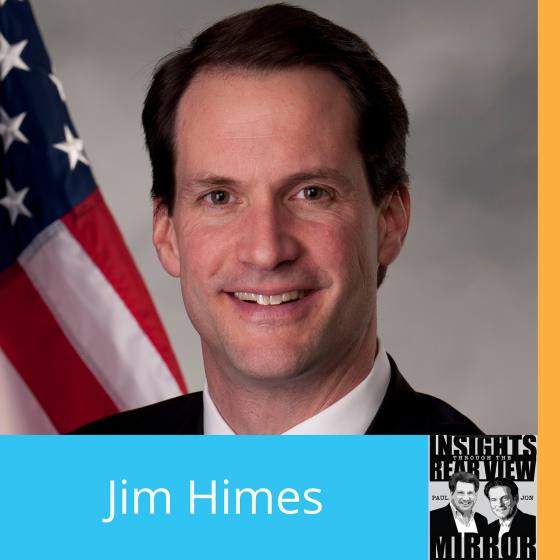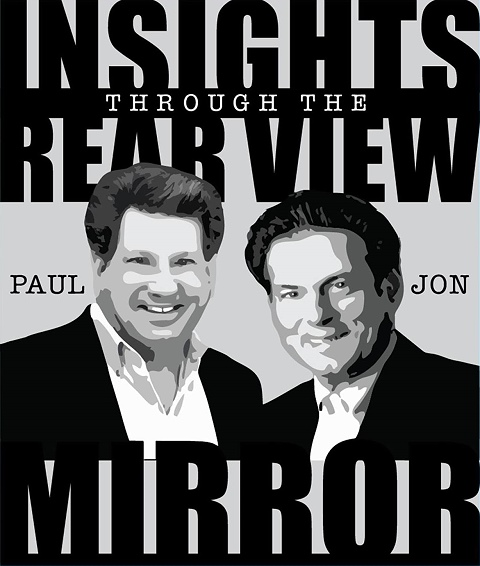Insights Through the Rearview Mirror, February 5, 2021
Insights Through the Rearview Mirror with Jon Kramer and Paul Kramer
Jim Himes: The Importance of Empathy When Making Any Decision
Today’s guest has made many decisions throughout his career that not only affect him, but the entire country.
We address:
How do I become aware of and check my biases when making decisions?
What can I do to build up my social capital?
How can I exercise more empathy in my decision-making process?
Paul welcomes Congressman Jim Himes. He has been the U.S. representative for Connecticut’s fourth congressional district since 2009, and was recently named Chair of the Subcommittee on national security, international development, and monetary policy of the House Financial Services Committee.
3 MAJOR POINTS DISCUSSED
-
Be wary of your “intelligence” and level of education when making big decisions. Thinking that you are smart and that you know all the answers is a weakness in making good decisions. In fact, it’s a liability. As humans, we’re always at the mercy of our biases. Adding an element of pride over your above-average intelligence or educational attainments will “turbocharge” those biases, because heaven forbid you’re actually wrong. Be aware of your biases, and that your experience is just a tiny part of the sum total of human experiences.
-
Social capital is just as important as—if not more important than—monetary wealth. Jim’s entire career, from college to working at Goldman Sachs and The Enterprise Community Partners, to serving in Congress—every one of those steps was facilitated by friends, acquaintances, and former coworkers. Maintaining and building your network is a form of wealth that is widely underappreciated.
-
Empathy is important in any situation. When making any decision, especially one that impacts more people than just yourself, you need to see how the situation looks in the eyes of others, and what the outcome of your decision will mean for them. In the realm of American politics today, there has been an alarming drought of empathy. Jim advises us to take a deep breath before making our big decisions, because if others are involved and we focus only on the benefits we or our team reap, these will likely become decisions we regret in the long run.
OUTLINE OF THIS EPISODE
-
Jim’s decision-making framework [02:54]
-
How Jim’s unique upbringing influences his personal and professional decisions [06:52]
-
Why Jim applied for a Rhodes Scholarship [09:29]
-
Getting involved in the financial services industry [10:52]
-
Making the pivot into politics [12:29]
-
The importance of having a support network [14:21]
-
Making decisions in the political sphere [16:08]
-
Jim’s experience working on the insider trading bill [19:26]
-
What decisions the two parties need to make to become more cooperative or bipartisan [22:05]
-
Jim’s reaction to the storming of the Capitol [26:24]
-
Decisions that Jim would have made differently [31:00]
ABOUT OUR GUEST
Jim Himes represents Connecticut’s 4th District in the United States House of Representatives where he is serving his fourth term. He is a member of the House Committee on Financial Services, serves as the ranking member of the NSA and Cybersecurity Subcommittee of the House Permanent Select Committee on Intelligence, and is Vice-Chair of the New Democrat Coalition.
Jim grew up as the child of a single working mom in a small town. As a member of Congress, Jim works hard to provide all American children the same opportunities he had to succeed: access to a first-rate public school, affordable and effective health care, a decent and safe home, and a supportive community.
Prior to his service in Congress, Jim ran the New York City branch of The Enterprise Community Partners, a nonprofit dedicated to addressing the unique challenges of urban poverty. Jim’s team led the way in financing the construction of thousands of affordable housing units in the greater New York metropolitan region, often using new green technologies to achieve energy efficiency and reduce utility costs.
Jim’s experience at Enterprise spurred his involvement in politics. Putting his expertise in affordable housing to work, Jim served as a Commissioner of the Greenwich Housing Authority, ultimately chairing the board and leading it through a much-needed program of reforms. Jim went on to become an elected member of his town's finance board, setting tax and budget policy for Greenwich. Jim has also served as Chair of his local Democratic Town Committee, organizing others in the community to become more active in the political process.
Jim began his professional career at Goldman Sachs & Co. where he worked his way up to Vice President over the course of a 12-year career. There he worked extensively in Latin America and headed the bank’s telecommunications technology group.
Jim lives in Greenwich with his wife Mary and two daughters Emma and Linley.
Insights Through the Rearview Mirror

“If I Knew Then What I Know Now – Insights Through the Rearview Mirror”
During the height of the Covid-19 Pandemic, marketing executives, and brothers, Jon and Paul Kramer were discussing the decisions each had made in their lives. The good, bad, big and small and how each of these decisions had informed and transformed their lives.
Out of these heartfelt conversations came the idea of helping others make more considered decision in their lives. And, while there are literally thousands of books on decision making, they started to discuss how to improve on these “how-to” text books to make the art of better decision making easier and more gratifying.
An ongoing theme was “If I knew then what I know now…”
“If I Knew Then What I Know Now – Insights Through the Rearview Mirror” is a journey through the decision-making process of interesting people. The question we will attempt to answer is there a decision-making framework that can lead to a more successful process? A way that will help you make better decisions.
In each episode, we will talk to interesting and intriguing guests about the decisions they have made in their lives, exploring the constructs they may have used and the learning that they have found in their very own “If I Knew Then What I Know Now” journey. Through these discussions, we will illuminate and amplify better ways to approach decisions and help you avoid deciding for the wrong reasons.










